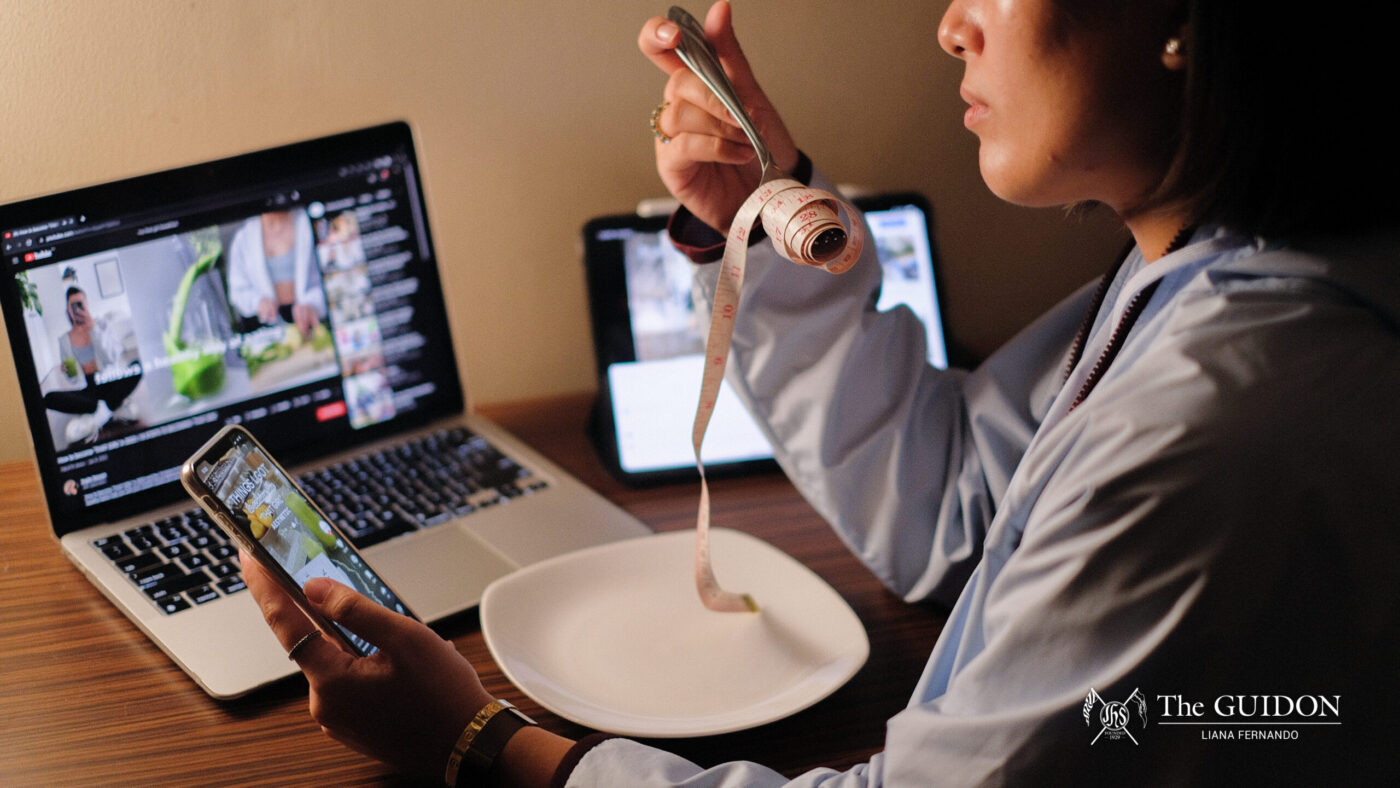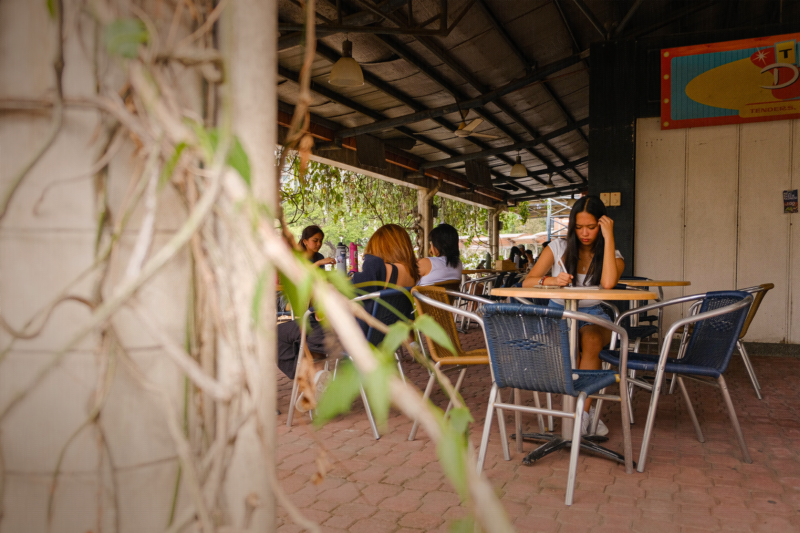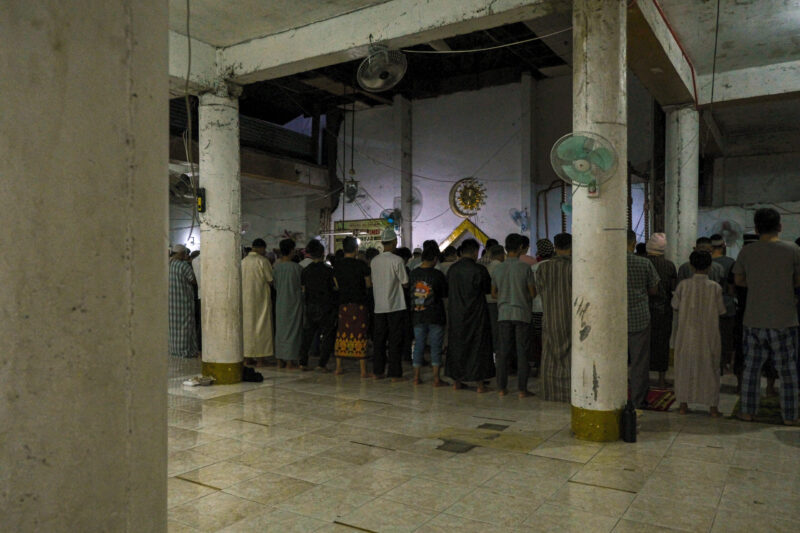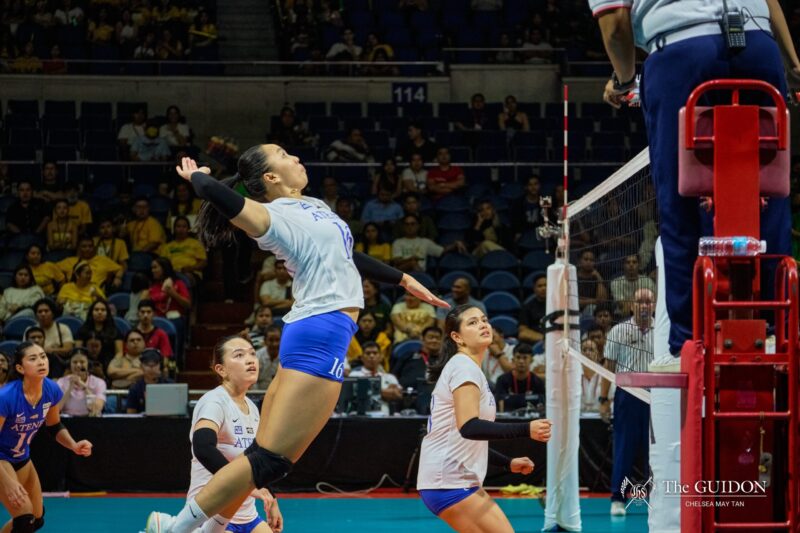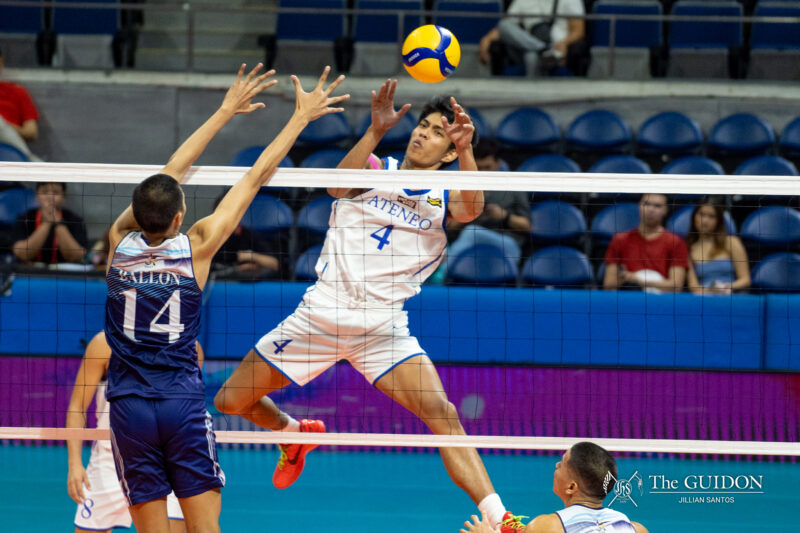One can say that health is wealth all they want, but skinny supremacy seems to have never left. For those who’ve grown up on the Internet, pro-ana behaviors eat them up as they choose to starve.
EATING DISORDERS (EDs) make their presence felt everywhere—from the media we consume to the beauty standards we uphold—but are openly talked about nowhere. When people do talk about them, true intentions get lost in romanticization. At worst, these discussions only fuel the unhealthy behaviors we may have thought were out of season.
While society has made space for body positivity, skinny supremacy is back—if it ever left in the first place. The Kardashians are reversing their Brazilian Butt Lifts, leaving the curvy bodies they placed into the mainstream and swapping them for extremely skinny looks. Vogue Magazine also announced the return of the 2014 Tumblr girl aesthetic, built on alt-rock bands, Doc Martens, and the romanticization of mental illnesses. In the end, one can’t help but feel that a desire for thinness is an inescapable cycle.
New trends and old f(r)iends
These throwbacks to the slender look come as no surprise—nostalgia is too easy to glamorize. Unfortunately, the worst parts of the past slither into the present, as society reinforces dated but timeless standards echoing that skinny stays superior.
“Now that more and more people are starting to realize how unattainable [the Kardashian body type] is, we’re [reverting] to 2000s beauty standards because being rail thin, though extremely detrimental to one’s health, doesn’t really require a huge sum of cash to achieve,” activist and fashion model Anya* (3 AB EU) shares.
Even when beauty isn’t defined by tiny waists, some “#fitnessgoals” actually harm more than help. For example, “that girl” wakes up at 5 AM, has 10-step skincare routines, and relies on green juice. Because “that girl” romanticizes being productive and practicing self-care, it sounds like a dream, but sometimes, that’s all it is. At its worst, the lifestyle can be a nightmare if it morphs into orthorexia: an ED built on the obsession over “clean eating.”
For Anya, the lines between “that girl” culture and disordered behavior are thin; it is hard to distinguish between true health and a blind desire to become thinner—known as “thinspo”—given that every “that girl” just so happens to be skinny. Ultimately, this “healthy” lifestyle’s transformation into orthorexia and disordered behavior is a rotten fruit of pro-anorexia culture. Also shortened to “pro-ana,” this subculture treats anorexia as a lifestyle instead of a sickness.
Stuck to the status quo
While eating disorders are taboo, they are shared realities for many. Unfortunately, prominent portrayals of EDs are rooted in harmful stereotypes. Characters with EDs—like Gossip Girl’s Blair and Skins’ Cassie—are usually also smart, rich, or both, giving people the message that perfection comes with an eating disorder.
People with EDs have tried to talk about their illnesses more openly, but this has not been an easy journey. This much is true for Eating Disorder Twitter (EDTWT), where teens as young as 13 years old discuss their unhealthy diets. Destructive behaviors like weight competitiveness and fatphobia taint spaces like EDTWT, only worsening a user’s pre-existing ED or giving them one in the process. According to Anya, EDTWT enables teens to bully each other into staying anorexic, with the mockery of fatness inherent to this behavior. In particular, “fatspo,” the antithesis of thinspo, is passed around by EDTWT users as warnings for themselves against gaining too much weight. Otherwise, they’ll grow as large as the heavier people they mock.
“Many people on EDTWT feel that they are better than most people—[those] people who eat without counting calories, caring about grease portions, and don’t count how many steps they take in a day. It’s a very ‘high school bully’ type of mindset, where, to feel better about themselves, they constantly have to bring other people down,” Anya shares.
Making spaces to talk about EDs isn’t inherently bad as EDs can and should be addressed, but without moderation, conversations on these sensitive topics will only be triggering.
The weight of it all
Having a slim physique is an ideal shared by many, but this does not have to come at the price of hatred towards the self or others. Weight loss can happen without the subconscious promotion of disordered behavior.
“We live in the age of instant everything. So when we want to lose weight, we want that to happen in an instant, too. But the problem is, healthy weight loss just doesn’t [happen instantly],” Anya says.
However, as the pro-ana trends of the past now find a contemporary resonance, it’s no longer enough to preach body positivity. It needs more.
As cliche as it sounds, a movement towards healthier views on eating and bodies does not stop with the self. There’s a need to fight against toxic standards as a collective and recognize disordered behavior for what it is, in hopes of helping those in need of help. While easier said than done, especially since fatphobia thrives in Filipino households, it’s a challenge worth taking for our collective welfare.
*Editor’s Note: The name of the interviewee was changed to protect their identity and privacy.

